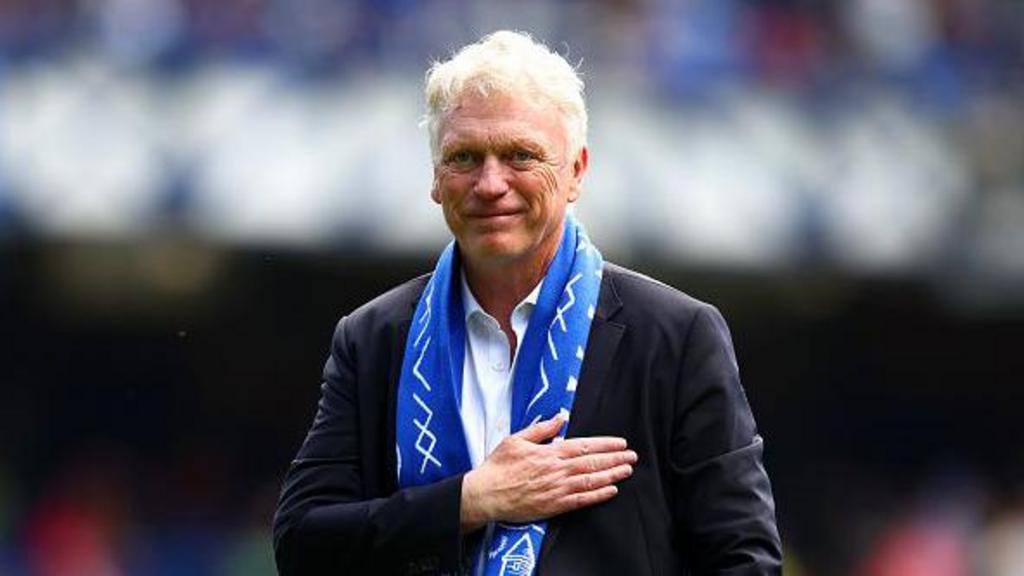Everton, under the stewardship of returning manager David Moyes, are poised to enter their new stadium in the 2025-26 season.
Moyes’ reappointment on January 11th, following Sean Dyche’s dismissal, marked a pivotal moment for the club, then precariously positioned one point above the relegation zone. They ultimately finished 13th, a comfortable 23 points clear of the drop.
After a period marked by points deductions and relegation battles, the combination of Moyes’ return, new ownership, and the move to a state-of-the-art 52,888-seater stadium offers a beacon of hope for Everton’s future.
With a sense of fresh beginnings permeating all aspects of the club, BBC Sport examines the crucial lessons Everton must learn this summer as they prepare for their inaugural season at Bramley-Moore Dock.
Everton are navigating their first summer transfer window under the Friedkin Group, who acquired the club for over £400m in December.
Football finance expert Kieran Maguire estimates that Everton will have between £50m-£100m to spend this summer—a significant increase compared to the previous four seasons, during which the club essentially operated at a net profit of £85.5m from player trading.
This fiscal prudence stemmed from past financial mismanagement, resulting in Profit and Sustainability Regulation (PSR) breaches, two points deductions, and narrow escapes from relegation.
Everton must now rectify past mistakes by achieving better value for money in their transfer dealings.
Farhad Moshiri’s near nine-year ownership, commencing in 2016, was characterized by a haphazard transfer policy and a revolving door of seven permanent managers. This resulted in Everton overspending on inflated fees and exorbitant contracts.
Abdoulaye Doucoure’s rejection of a new contract in May highlights a concerning trend: eight players signed for at least £20m during Moshiri’s tenure have departed for free, representing a write-off of approximately £188m in transfer fees.
Should out-of-contract defender Michael Keane, acquired from Burnley for an initial £25m in 2017, also leave, this figure would exceed £200m.
Former Everton midfielder Leon Osman emphasizes the need for improvement in this area.
“It’s unacceptable to pay significant fees for players and receive no return,” he stated.
“The past decade has been challenging regarding player acquisition and resale profit. This massive financial outlay on players who subsequently leave for free is deeply concerning.”
Jean-Philippe Gbamin, for instance, only played six Premier League games after a £25m move from Mainz in 2019.
Amongst these high-value free departures, Doucoure arguably offered the best value, featuring in 149 Premier League matches and scoring the goal that secured Everton’s Premier League survival in 2023.
Conversely, examples like the injury-prone Gbamin, who made only two league starts before leaving for the French second tier, are stark reminders of poor investment.
Yannick Bolasie (£25m from Crystal Palace) scored two Premier League goals before multiple loan spells and a free departure, while Cenk Tosun (£27m) scored five goals in 14 games before a series of loan moves.
The pattern is clear: Everton’s substantial spending has often yielded poor results, a trend that must be reversed if they aim for the European football Moyes has openly desired.
Everton striker Dominic Calvert-Lewin remains unsigned beyond his current contract expiring in July.
However, there have been some astute acquisitions since the more chaotic period of Moshiri’s ownership.
Jake O’Brien and Iliman Ndiaye, both signed last summer for under £17m, represent shrewd investments—though funded by the £50m sale of Amadou Onana to Aston Villa.
Everton’s recruitment strategy, and Moyes’ market acumen, will be tested by the need to overhaul a squad with 12 players, including 10 first-team members, out of contract this summer.
Captain Seamus Coleman and midfielder Idrissa Gueye are in contract extension talks, while striker Dominic Calvert-Lewin and Keane could depart.
Ashley Young and Doucoure have already left, along with goalkeepers Asmir Begovic and Joao Virginia, and loan players Jack Harrison, Jesper Lindstrom, Orel Mangala, and Armando Broja have returned to their parent clubs.
Everton confirmed the permanent signing of Carlos Alcaraz for £12.5m in May, but significant gaps remain in terms of goalscoring, creativity, and squad depth.
Osman, a club stalwart from 2003-2016, views the mass exodus as an opportunity for a “fresh start”.
“This is the foundation for rebuilding,” the 44-year-old stated. “Everton have had numerous managers and diverse players under different systems. David Moyes understands Everton’s identity.”
Leon Osman played under David Moyes at Everton between 2003 and 2013.
Patience is necessary as the Friedkin Group navigates the complexities of PSR.
The club’s latest financial report for 2023-24, external reveals a £53.2m loss, a £36m improvement on the previous year, with revenue increasing by 9% to £187m—encouraging, but emphasizing the need for prudent spending.
Osman believes Everton must retain key players like Jarrad Branthwaite, James Tarkowski, and Jordan Pickford while recruiting leaders to bolster the depleted squad.
“A Moyes-managed team is demanding,” he explained. “Players appreciate his clarity and expectations. O’Brien’s success at right-back, against initial expectations, demonstrates the potential. We need to retain these players.”
Everton’s failed pursuit of Chelsea’s Liam Delap underscores the priority of acquiring a prolific striker, along with a right-back, right-winger, and central midfielder. However, departures necessitate recruitment across most positions to build squad depth.
The club is reportedly interested, external in Villarreal striker Thierno Barry.
Everton has streamlined its operations, abandoning the director-of-football model following Kevin Thelwell’s departure, opting for a sports leadership team headed by new chief executive Angus Kinnear.
Kinnear utilizes data and analytics experts, alongside football operations, recruitment, talent identification, and player trading specialists.
Kinnear’s engagement with the Fan Advisory Board contrasts sharply with the previous regime, where former manager Dyche described communication with Moshiri as limited to “WhatsApp and occasional phone calls”.
Osman supports the new structure, adding: “It’s time to rally behind the new leadership, leveraging Moyes’ extensive experience. I have immense trust in David Moyes.”
Comments can not be loaded
To load Comments you need to enable JavaScript in your browser

